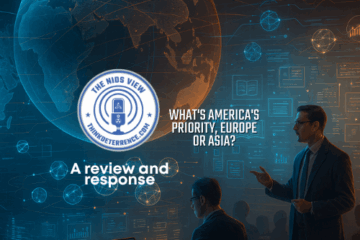The terror episode at Pahalgam, Kashmir, in April 2025 marked a significant shift in the contemporary security narrative of South Asia. Not only did militants connected to The Resistance Front, a proxy allegedly linked to Pakistan-based Lashkar-e-Taiba, kill 26 civilians, mostly Indian tourists, but they also gravely destabilized regional equilibrium and resurrected the threat of cross-border terrorism. Political, economic, social, and strategic shockwaves were generated by the attack that emphasizes existing flaws and exacerbates long-standing rifts in South Asian security. This is all happening at a time when Pakistan fears India’s nuclear modernization and India fears China’s nuclear expansion.
The Decline of Bilateral Trust and Regional Diplomacy
The breakdown of already fragile India-Pakistan diplomatic relations was the most immediate strategic victim of the Pahalgam assault. India’s quick charge that Pakistani-backed terrorists planned the assault brought up historical complaints. Within days, both countries cancelled diplomatic talks, visa access, and expelled officials.
While Islamabad reacted by stopping trade, suspending the Shimla Agreement, and restricting its airspace to Indian flights, New Delhi repudiated the Indus Waters Treaty—long thought a bedrock of bilateral cooperation. These responses show a rising lack of confidence between the two nuclear-armed neighbors.
Formal diplomatic channels are now frozen, therefore removing avenues for crisis de-escalation. Especially along the unstable Line of Control, an area quite prone to miscalculations and without institutionalized communication. The assault has not only weakened confidence-building initiatives but also confirmed every country’s geopolitical position, hence lowering the probability of near-term rapprochement.
Rising Nationalism and Domestic Political Fallout
Both India and Pakistan used the Pahalgam disaster as a political fulcrum. The ruling Bharatiya Janata Party (BJP) in India used public anger to support its strong-on-security image. The government of Prime Minister Narendra Modi reacted with militarized rhetoric and increased security operations in Kashmir. Among Indian voters, the story of avenging the martyrdom of civilians solicits a strong appeal and increases the political capital of Modi’s desire for greater internal security, including increased police authority in Kashmir.
The government of Pakistan characterized India’s claims as slander and a diversionary strategy. Denying complicity, Pakistan’s government mobilized internal support against fear of Indian aggression, accusing India of orchestrating a “false flag” strike. These stories polarize both sides and provide little space for moderation or bilateral diplomacy. The assault strengthened a populist-nationalist cycle in which every government raises internal power by means of external dangers.
Strategic Setbacks and Economic Disturbance
The Pahalgam attack has several financial repercussions. Most directly, Kashmir’s tourist industry suffered. An attack on tourists diminished confidence precisely when the area was recovering from low confidence in security by tourists. Cancellations of travel already resulted in significant losses for local companies relying on tourism—hotels, guides, and transporters.
The psychological effect of the assault will dissuade not only internal mobility but also investment in Kashmir’s faltering economy. Regionally, the decrease of commercial connections between India and Pakistan, already limited since 2019, further compromises economic integration.
Visa cancellations by Pakistan and restriction of flight access interfere with trade flows and logistical infrastructure. In industries like energy and infrastructure needing cross-border collaboration, the diplomatic conflicts have a cooling impact on foreign direct investment (FDI). Multilateral projects like the South Asian Association for Regional Cooperation (SAARC), already under pressure from India-Pakistan rivalry, now confront an existential crisis. Stagnation and lost chances for cooperation, especially in commerce, water sharing, and digital connectivity, hurt the regional economy.
Increasing Social Division and Insecurity
The attack’s societal effects are equally grave. It set off a flood of anti-Pakistan and anti-Muslim feeling in India. Some right-wing Indians see the whole Kashmiri community as terrorists. Among Indian Muslims and Kashmiris, the incident has heightened feelings of alienation and helped to create a divided national identity. In the days following the assault, reports of harassment, stereotyping, and hate speech skyrocketed.
The government’s counter-narrative of Indian aggression also generated nationalism and skepticism about cross-border communication in Pakistan as well. As distrust rises, civil society projects encouraging people-to-people communication struggled. Both cultures are thus being driven into echo chambers, where polarization and rhetoric distort nuance and cause more chaos.
Issues in Counterterrorism and Security Realignment
The Pahalgam incident shows major shortcomings in regional security systems. The attack exposed India’s shortcomings in intelligence and the protection of soft targets. The Indian government reacted by dispatching more soldiers to Kashmir, raising checkpoints, and vowing to eradicate the last militant networks. Such actions, however, can irritate locals and aggravate conflicts.
The assault also highlights a tactical change in insurgency strategy, specifically the intentional targeting of visitors and civilians to undermine the narrative of peace. This implies a desire to create broad concern and provoke a socio-political response, marking a departure from assaults primarily directed at military or security institutions.
Counterterrorism initiatives, therefore, must evolve to fit this evolving threat profile by balancing military responses with intelligence-based interventions and community involvement. On the other hand, Pakistan is attracting more outside attention over the existence of terror organizations inside its borders. The assault raises questions about Islamabad’s claims to be a responsible actor and could compromise its attempts to draw international investment or receive preferential treatment from organizations such as the Financial Action Task Force (FATF). The scenario calls for a recalibration of Pakistan’s internal security strategy to neutralize non-state actors and reassure the world community of its commitment to counterterrorism.
Regional Cooperation in Crisis
The Pahalgam incident could set off a shift in South Asia’s regional security framework despite the grave effects. Though India and Pakistan vary, the entire regional community, including Bangladesh, Nepal, and Sri Lanka, has a stake in preserving stability. These nations may suggest fresh security pacts emphasizing crisis management and counterterrorism; bring back SAARC talks; or work together to encourage de-escalation.
Furthermore, countries like the United States, China, and the Gulf states have a special chance to intervene quietly. The United Nations’ appeal for caution and regional collaboration emphasizes the prospect of global involvement in lowering tensions. After all, it was between India and Pakistan that many analysts thought would see the first use of nuclear weapons since 1945—prior to Vladimir Putin’s nuclear threats over Ukraine. Civil society, think tanks, and academic conferences can also help to fill the diplomatic vacuum by providing frameworks for communication, conducting collaborative danger assessments, and promoting cross-border awareness.
A Crossroads for South Asia
Undoubtedly, the Pahalgam terror incident altered South Asia’s security scene. Its effects are being felt well beyond the blood-soaked fields of Kashmir—disturbing governments, economies, and cultures throughout the subcontinent. It has revived old conflicts, exposed new weaknesses, and challenged regional players to face the fragility of peace.
Within this uncertainty is a chance to rethink security in terms of trust, inclusion, and cooperation rather than only in military ones. South Asia’s challenge is to make sure this tragedy propels a more stable, secure, and cooperative regional order rather than just another chapter in a cycle of retribution that always has the chance of going nuclear. Whether that vision comes true relies on the decisions its leaders make in the next weeks and months.
Arman Ahmed is the Founder and President of Dhaka Thinks, a Research Analyst at the Spykman Center, and a Research Fellow, International Council on Human Rights, Peace, and Politics. Views expressed by the author are their own.




